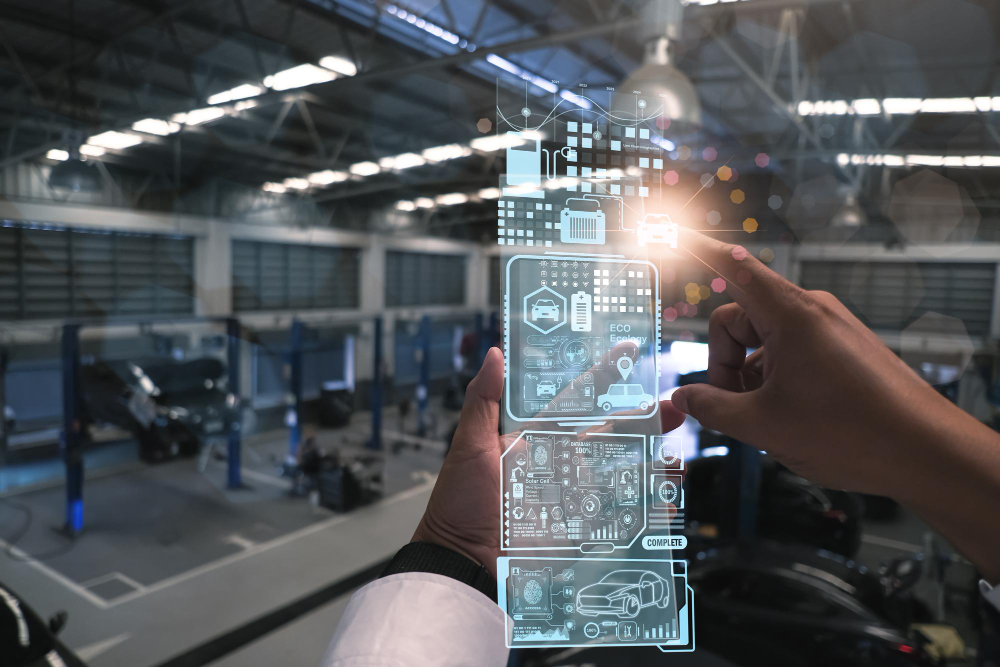In today’s industrial sectors, artificial intelligence (AI) technologies have gained significant importance. AI applications in factories enable businesses to optimize production processes, reduce costs, and better meet customer expectations. The goal of these applications is to enhance efficiency and reduce production costs in factories by making intelligent decisions and increasing automation. This article will focus on the types and advantages of AI applications commonly used in factories. In our new blog post, we examine the efforts made in factories with artificial intelligence technologies under six main headings.
Production Management
The production process in factories is highly complex, and production management plays a crucial role in its oversight. AI technologies are among the most effective tools for managing this process and can be utilized at all stages of production.
For example, data generated during the production process can be analyzed using AI algorithms. These analyses can identify and correct errors in the production process. Additionally, efficiency can be increased, and the production process can be better planned. This enables factories to produce faster and more efficiently.
Quality Control
During production in factories, determining the quality of products is of great importance. Quality control helps identify and correct errors in the production process. AI technologies are among the most effective tools for the quality control process.
For instance, AI algorithms can be used to assess the quality of products by examining their characteristics and identifying defects. Moreover, these algorithms can determine the root causes of errors in the production process, allowing for corrective actions to be taken. This makes the quality control process more efficient and improves product quality.
Maintenance Management
In factories, machines must undergo regular maintenance. However, managing the maintenance process is often labor-intensive and time-consuming. AI technologies can be used to make this process more efficient.
For example, by utilizing sensors in machines, AI algorithms can help plan and manage the maintenance process. This allows potential failures to be detected early, preventing unnecessary breakdowns. Additionally, AI technologies can facilitate the timely procurement of parts needed for maintenance.
Inventory Management
AI can be used in inventory management in factories. AI algorithms can predict which parts the factory will need, ensuring that required parts are available in stock and that the production process continues without interruption.
Production Line Optimization
AI can be utilized to increase the efficiency of production lines. Machine learning algorithms can analyze data from the production line to identify when errors occur and create more effective maintenance plans. As a result, the production process experiences fewer interruptions and fewer errors.
Safety and Risk Management
Factories can optimize safety and risk management by using AI algorithms. AI algorithms can monitor movements within the factory, detect safety violations and improper behaviors, and anticipate potential failures and hazards on the production line, making risk management more effective.

